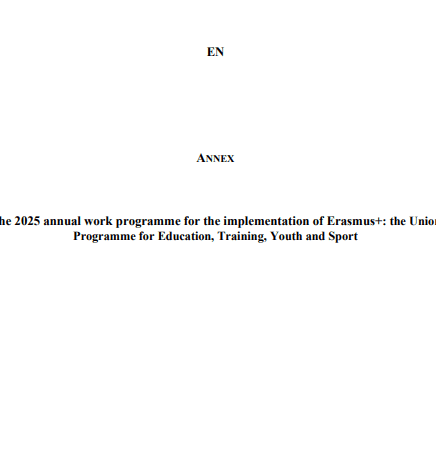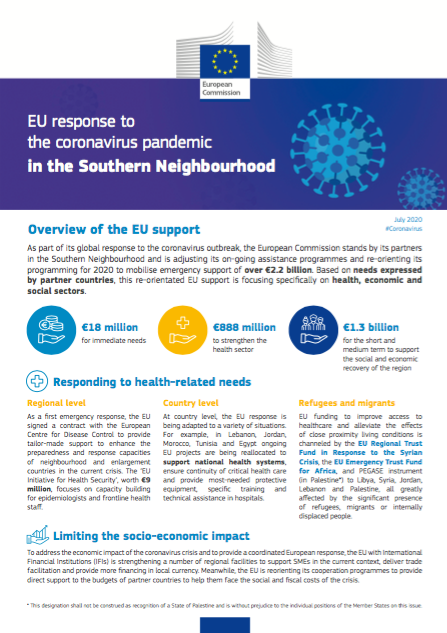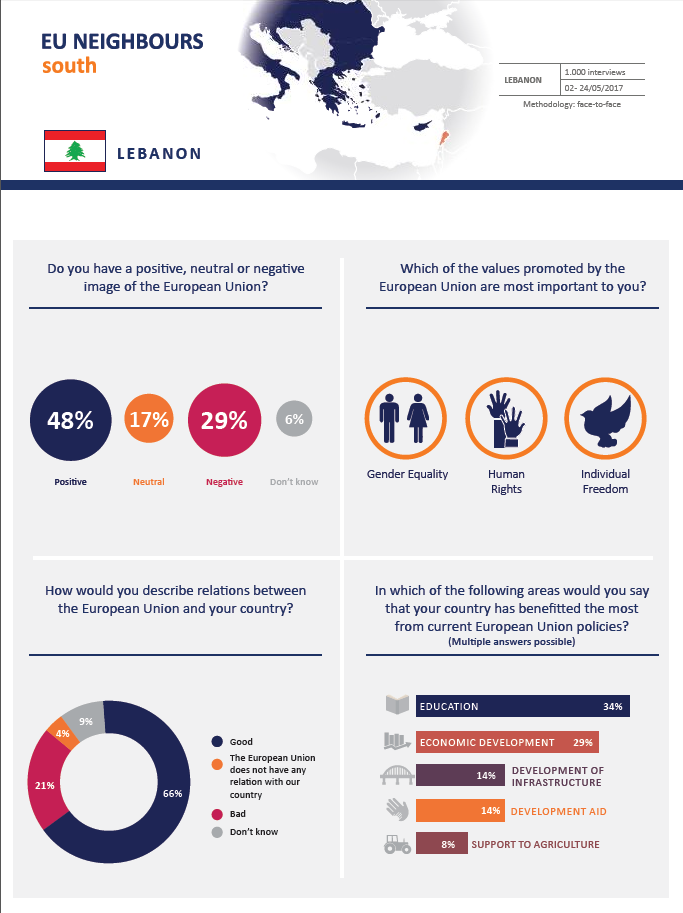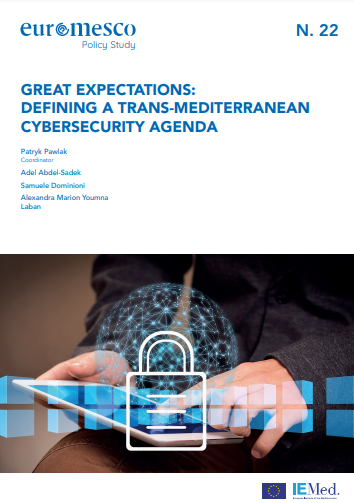2025 annual work programme for the implementation of Erasmus+

According to the Regulation (EU) 2021/817 of the European Parliament and of the Council of 20 May 2021 establishing Erasmus+: the Union Programme for education, training, youth and sport and repealing Regulation No 1288/20131 (‘the Regulation’), the general objective of the Erasmus+ Programme (the ‘Programme’) is to support, through lifelong learning, the educational, professional and personal development of people in education, training, youth and sport, in Europe and beyond, thereby contributing to sustainable growth, quality jobs and social cohesion, driving innovation, and to strengthening European identity and active citizenship.
The Programme shall be a key instrument for building a European Education Area; it shall support the implementation of the European strategic framework for European cooperation in education and training towards the European Education Area and beyond, with its underlying sectoral agendas, including the European Strategy for universities, advancing youth policy cooperation under the European Union Youth Strategy 2019-2027 and developing the European dimension in sport.
The programme also offers a strong international dimension and contributes to the delivery of the Global Gateway strategy for a stronger Europe in the world, as underlined by a Council resolution on a strategic framework for European cooperation in education and training towards the European Education Area and beyond (2021-2030). Cooperation in education and training has gradually become an important instrument for the implementation of EU external policies, based on European values, trust and autonomy.
Latest Publications






























 Syria
Syria 



